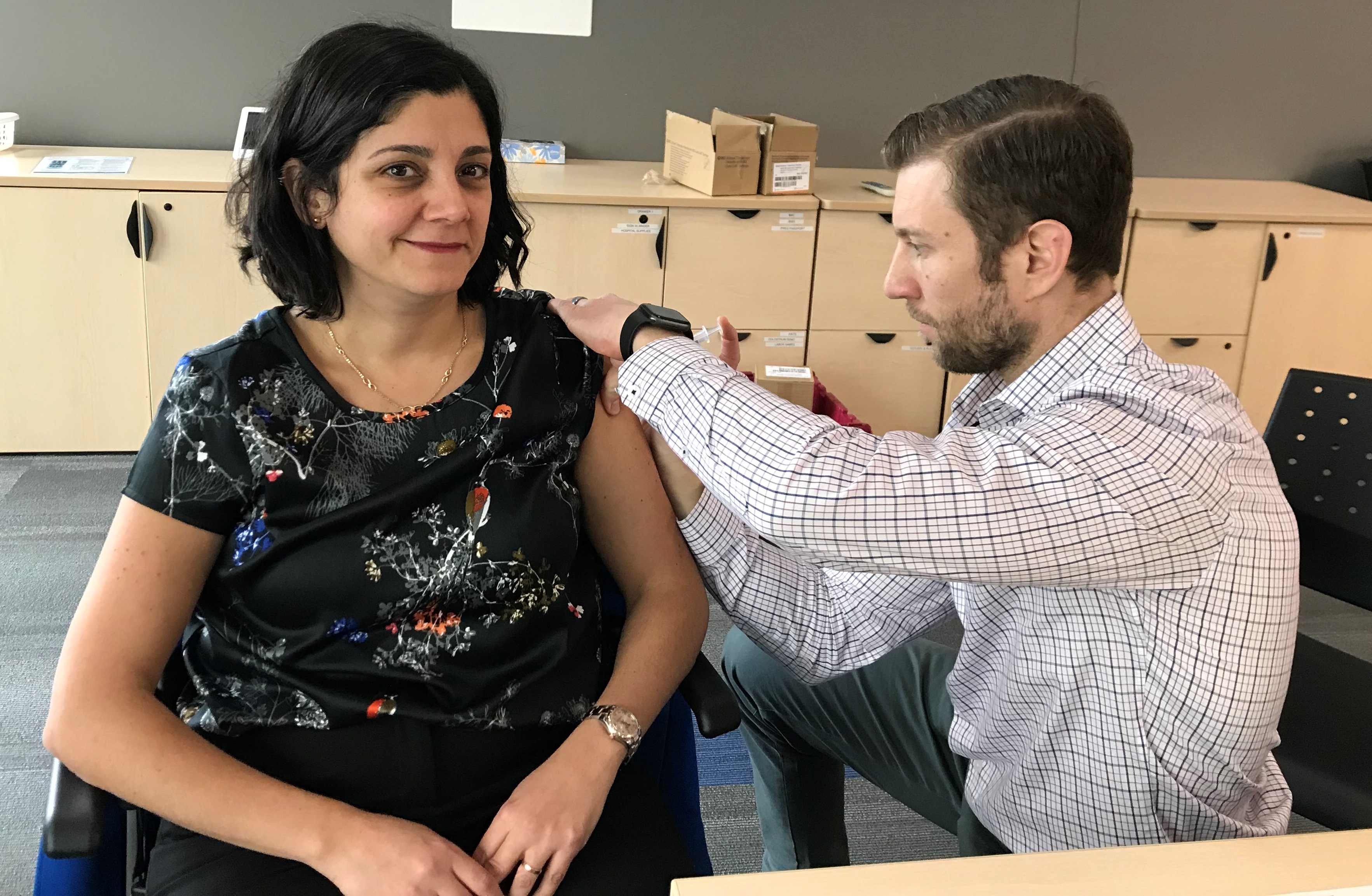As flu season is fast approaching, Interior Health is reminding the public of the importance of immunization.
Interior Health said that while anyone can get the flu, there is a risk of a deadly upper airway infection caused by the influenza virus that can easily spread from person to person.
“The flu can be a very serious disease, it’s a debilitating disease,” said Dr. Silvina Mema. “For some individuals, it can even be life-threatening.”
In addition to protecting yourself from sickness, Interior Health said a flu shot can help protect other people as well by limiting the spread of the virus.
Children under five, pregnant women, Aboriginal people, those over 65, and people with underlying health issues are at an increased risk of serious health complications.
“People can self-treat for the flu, people don’t necessarily have to go to the hospital or the doctor. We strongly encourage people with flu symptoms to stay home so they don’t spread the disease” Said Mema. “There are some circumstances which we stress the need to call 911 or go to the emergency department. That’s with severe difficulty breathing, chest pain, yellow discharge from your nose, and sudden pain. This could be a sign of complications.”
Interior Health recommends getting a shot before flu season to limit the illness. A map of clinics where the shot is available can be found here or you can contact your doctor or pharmacist.
The flu shot is free for the following people:
- People 65 years and older and their caregivers/household contacts.
- People of any age in long-term care facilities.
- Children and adults with chronic health conditions and their household contacts.
- Those under 18 with conditions treated for long periods with Aspirin (ASA), and their household contacts.
- People who are morbidly obese;
- Aboriginal people.
- All children six to 59 months of age.
- Household contacts and caregivers of infants and children from birth to 59 months of age.
- Pregnant women at any stage of pregnancy during the influenza season and their household contacts.
- Visitors to hospitals, health centres and long-term care facilities;
- People who work with live poultry.
- Health-care and other care providers in facilities and community settings who are capable of transmitting influenza disease to those at high risk of influenza complications.
- People who provide care or service in potential outbreak settings housing high-risk persons (e.g., crews on ships).
- People who provide essential community services (first responders, corrections workers).




